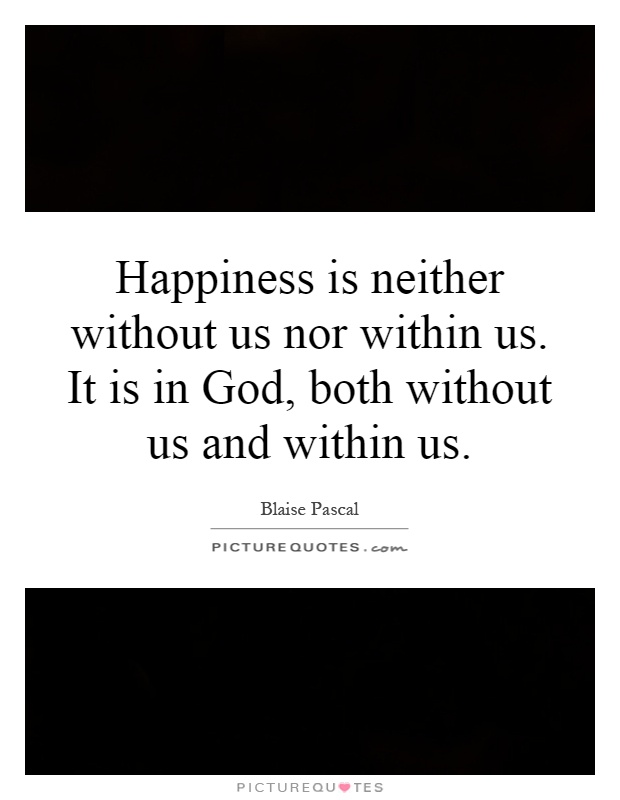Happiness is neither without us nor within us. It is in God, both without us and within us

Happiness is neither without us nor within us. It is in God, both without us and within us
Blaise Pascal, a renowned French mathematician, physicist, and philosopher, is often credited with the quote, “Happiness is neither without us nor within us. It is in God, both without us and within us.” This profound statement delves into the complex nature of happiness and its relationship to spirituality.Pascal believed that true happiness could not be found solely in external circumstances or material possessions. While external factors such as wealth, success, and relationships can bring temporary joy, they are ultimately fleeting and unreliable sources of happiness. Similarly, seeking happiness solely within oneself through self-improvement or self-fulfillment can also lead to disappointment and emptiness. Pascal argued that true and lasting happiness can only be found in God, who exists both outside of us in the external world and within us in our hearts and souls.
For Pascal, God was the ultimate source of happiness because He is eternal, unchanging, and all-loving. By cultivating a relationship with God through prayer, meditation, and acts of kindness, individuals can experience a deep sense of peace, contentment, and joy that transcends the ups and downs of life. This spiritual connection to God allows individuals to find happiness not only in moments of success and pleasure but also in times of adversity and suffering.
Pascal’s philosophy on happiness and God is deeply rooted in his Christian faith and belief in the existence of a higher power that governs the universe. He saw God as the ultimate source of meaning, purpose, and fulfillment in life, and believed that true happiness could only be achieved through a personal relationship with Him. By surrendering to God’s will and trusting in His divine plan, individuals can find a sense of peace and happiness that surpasses all understanding.












 Friendship Quotes
Friendship Quotes Love Quotes
Love Quotes Life Quotes
Life Quotes Funny Quotes
Funny Quotes Motivational Quotes
Motivational Quotes Inspirational Quotes
Inspirational Quotes